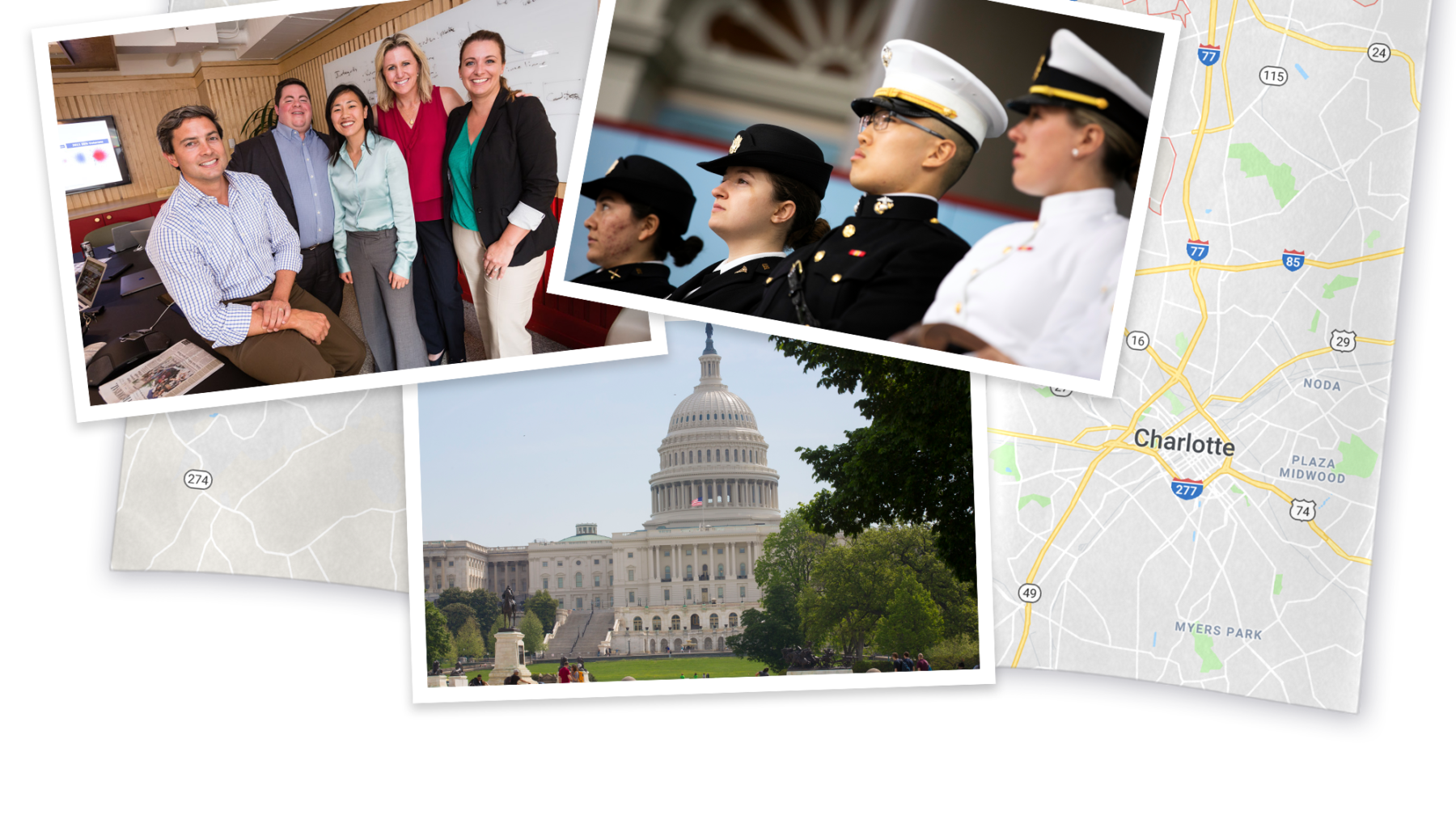
Rye Barcott, pictured far left with the With Honor executive team, has a commonsense strategy to help bridge the deep political divide in Congress: Elect more military veterans.
Photos courtesy of With Honor; by Stephanie Mitchell and Kris Snibbe/Harvard Staff Photographers; and from iStock
United front
“There’s an incredible hunger for something different, for pragmatic solutions, for folks who can put country before party.”
Two things about Rye Barcott, M.B.A. ’09, M.P.A. ’09: He knows that solving even the most complex problems requires practical approaches, and he isn’t easily daunted.
While an undergrad at the University of North Carolina, he co-founded Carolina for Kibera, an NGO in an impoverished Kenyan settlement that aimed to ease the ethnic and religious unrest that has plagued that country, boosting gender cooperation, and improving health care.
As a Marine, he spent time in Iraq, Bosnia, and the Horn of Africa.
After his tours he earned two master’s degrees at Harvard, and then used his newly acquired skills to helped start Double Time Capital, an investment firm focused on sustainable energy projects at a time when falling fossil fuel prices made the need feel less urgent.
Now he thinks he has a commonsense strategy to help bridge the deep political divide in Congress: Elect more military veterans.
“Veterans as a group, over the last 50 years, have voted across party lines in more ways, statistically, than nonveterans,” Barcott said. “Veteran representation is also at a near-historic low in Congress.”
So Barcott, along with Navy veteran David Gergen, Public Service Professor of Public Leadership at the Harvard Kennedy School, formed With Honor in 2017, a cross-partisan movement to get more veterans in office. Gergen, no stranger to bipartisanship, held high-ranking posts in the administrations of both Democrats and Republicans.
With Honor Action offers training on how to run for office, raise funds, and network. Veterans, Barcott said, already come equipped with the values required for working across the aisle, qualities that apparently struck a chord with many Americans: With Honor Fund helped nine Republican and 10 Democrat veterans win elections in 2018.
“What we found was that there’s an incredible hunger for something different, for pragmatic solutions, for folks who can put country before party.”
Getting in office is only the first step, though.
“Now they are doing what they said they would do,” Barcott said. “There’s very little that’s passing in Congress right now, but one of the members — Elaine Luria, a Navy veteran in Virginia — introduced the Gold Star Family Tax Relief Act, which reduces the tax burden on families who have lost loved ones in military service.
“That just passed the House,’’ Barcott said with pride.
Though the measure has wide support in Congress and is expected to eventually be approved, it is currently stalled in political wrangling between the two chambers.
Barcott is excited about the prospects for the next election cycle.
“Our goals for the 2020 cycle are to support those 19 members, and make sure they get re-elected, while also growing the numbers,” he said. “We’ve got more than 60 veteran candidates we’re working with, helping them learn the nuts and bolts of running for office.”
This story is part of the To Serve Better series, exploring connections between Harvard and neighborhoods across the United States.




